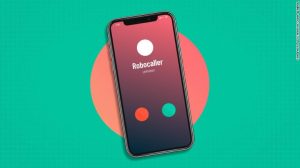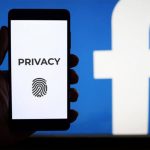TechInAfrica – On Thursday last week (23 Aug), AT&T Inc., Verizon Communications Inc, and other 10 giant companies have struck an agreement with 51 attorneys general regarding robocalls and its technology enactment, preventing them from reaching active users of the companies’ services.
As stated by North Carolina Attorney General Josh Stein who is leading the case that includes all 50 states and the District of Columbia, the arrangement will protect the customers from getting illegal robocalls and assist law enforcement in investigating and prosecuting the culprits responsible for the calls.
There have been 48 billion robocalls received last year across the U.S., up from 31 billion in 2017, according to a tally by YouMail Inc., a software developer that is tasked with blocking the calls. The customers are often tricked into answering the phone calls since they convincingly seem like coming from a local or business number. The companies are therefore under the time constraint to settle this matter for the sake of the customers, as unwanted calls place the first on the top source of complaints within the U.S. Federal Communications Commission.
The arrangement would manifest in the form of a call-blocking technology, launched at zero cost from the companies for the customers, paired with a couple of other free anti-robocall devices apps made available for the service’s subscribers.
“By signing on to these principles, industry leaders are taking new steps to keep your phone from ringing with an unwanted call,” Stein said in a statement.

Ajit Pai, the Chairman of FCC pointed that the arrangements with the states are aligned with FCC’s own anti-robocalling and spoofing efforts, which includes the standard authentication for the agency’s caller. FCC also demanded that the blocking effort is to be deployed for work by the end of the year, and as from July, the three companies, which are AT&T, Verizon, and T-Mobile US Inc. reported that the technology is still in progress toward installation, enabling the customers to be in the know when the call is coming from the intended caller or the contrary.
Pai agreed that few things can indeed bring together policy leaders across the political spectrum, like the fight against unwanted robocalls, and assured that FCC is committed to working together with the Congress, state leaders, and the federal partners, to put an end to unwanted robocalls.
According to FCC, carriers should also adopt a system that is capable of validating phone calls passing digitally through the complex neural networks. The agency also mentioned that providers may block calls and appoint a preliminary vote in which digital authentication is a requirement when carriers miss the year’s end deadline of installing the system.
Some of the leading U.S. carriers released statements in concordance with the state attorneys general’s announcement. Although the whole group supported the effort, there remains a small amount of new, specific anti-spam call actions or timelines mentioned.
Letitia James, the Attorney General of New York, added her take on the issue, in which the fraudsters that operate these deceptive acts will soon have one call left to make, and that would be a call to their respective lawyers.
Companies Involved
The fight against the scourge of illegal robocalls would require all hands on deck, AT&T stated, and that the support from the state attorneys general are fully welcomed and appreciated.
From Verizon’s stand, it’s an imperative thing to work on a common set of goals that include stopping callers from hiding their identities, partnering with other carriers on efforts to trace back illegal calls to the source, and keeping the originators from sending robocalls in the first place.
Following AT&T and Verizon’s step, the other companies signing the agreement are T-Mobile, CenturyLink Inc., Comcast Corp., Sprint Corp., Bandwidth Inc., Charter Communications Inc., Consolidated Communications Holdings Inc., Frontier Communications Corp., U.S Cellular Corp., and Windstream Holdings Inc.
Source: Mybroadband.co.za


